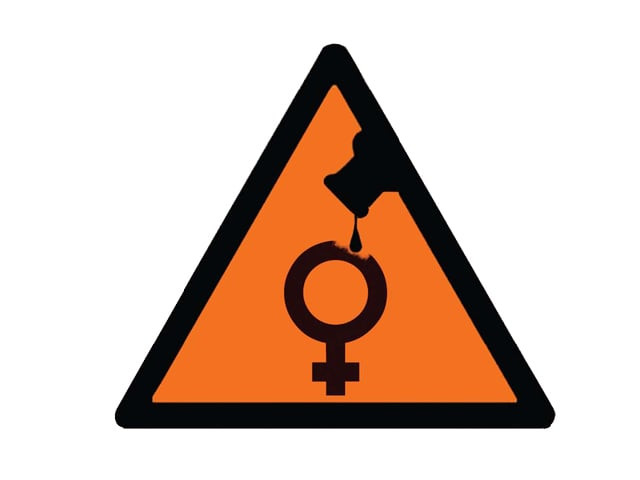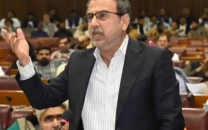Australia helps acid victims in Pakistan get back on their feet
Acid Survivors Foundation and Jinnah Institute awarded Rs10 million each by Australian govt.

She refused to sell her children, so he burnt her face with acid.
“Our life has been ruined,” Mai said, about herself and her five children, some of whom were also physically affected in the acid attack by her husband. “We have been condemned to a life worse than death,” she added.
It has been three years since Mai was attacked but despite the difficulties, she hasn’t lost all hope– although she has not been alone in the struggle.
Mai has been receiving support from the Acid Survivors Foundation (ASF), a Pakistani organisation working towards the eradication of acid violence against women. The ASF is one of the two organisations that have received a Rs10 million grant by the Australian government under its annual Human Rights Grant Scheme. The Jinnah Institute is the other organisation.
The grants were announced by Australian Foreign Minister Bob Carr in Australia on the International Human Rights Day on December 10.
While formally handing over the grant rewards during a press conference, Australian High Commissioner Peter Heyward expressed admiration for the dedication the groups had shown in addressing the sensitive issue and promoting human rights. He also lauded the courage the acid survivors have shown at not only raising their voice against the crime, but extending their support against it.
According to a report by the Aurat Foundation, acid attacks against women had soared by 37.5% in 2011 as against 2010. This year, the ASF has noted 95 acid attacks.
“We need to ensure that these 95 victims get justice so that human rights in Pakistan can become a tangible reality,” Valerie Khan Yusufzai, chairperson of the ASF, said in a message which was read by Amenah Hasan at the press conference.
While in Mai’s case her husband was arrested and jailed for 33 years, many offenders of acid violence are never brought to justice.
“In 80% of the cases when the acid survivor goes to the police, the law for acid crimes is ignored,” Executive Director of ASF Mohammad Khan said. “Either they don’t register a case or they book the perpetrators for some other offence.”
Under the Criminal Law (Amendment) Act 2011, offenders can be fined up to Rs1 million and can be imprisoned for life. But the implementation has its own loopholes.
While the ASF plans on spending its grant to ensure the law is implemented nationwide, the Jinnah Institute plans differently.
The Jinnah Institute plans to utilise the grant in creating awareness against the crime. The director of the institute, Raza Rumi, said the grant will be spent over creating awareness of international standards of human rights in school curriculums.
“It is of vital importance that we focus and reenergize our efforts towards correcting the flaws in our educational system,” he said.
Rumi acknowledged that it will be a lengthy and challenging process, but said it needs to begin now.
“We must start the process of educating people and stop complaining about the impossibility of it,” he said.
Published in The Express Tribune, December 14th, 2012.


















COMMENTS
Comments are moderated and generally will be posted if they are on-topic and not abusive.
For more information, please see our Comments FAQ